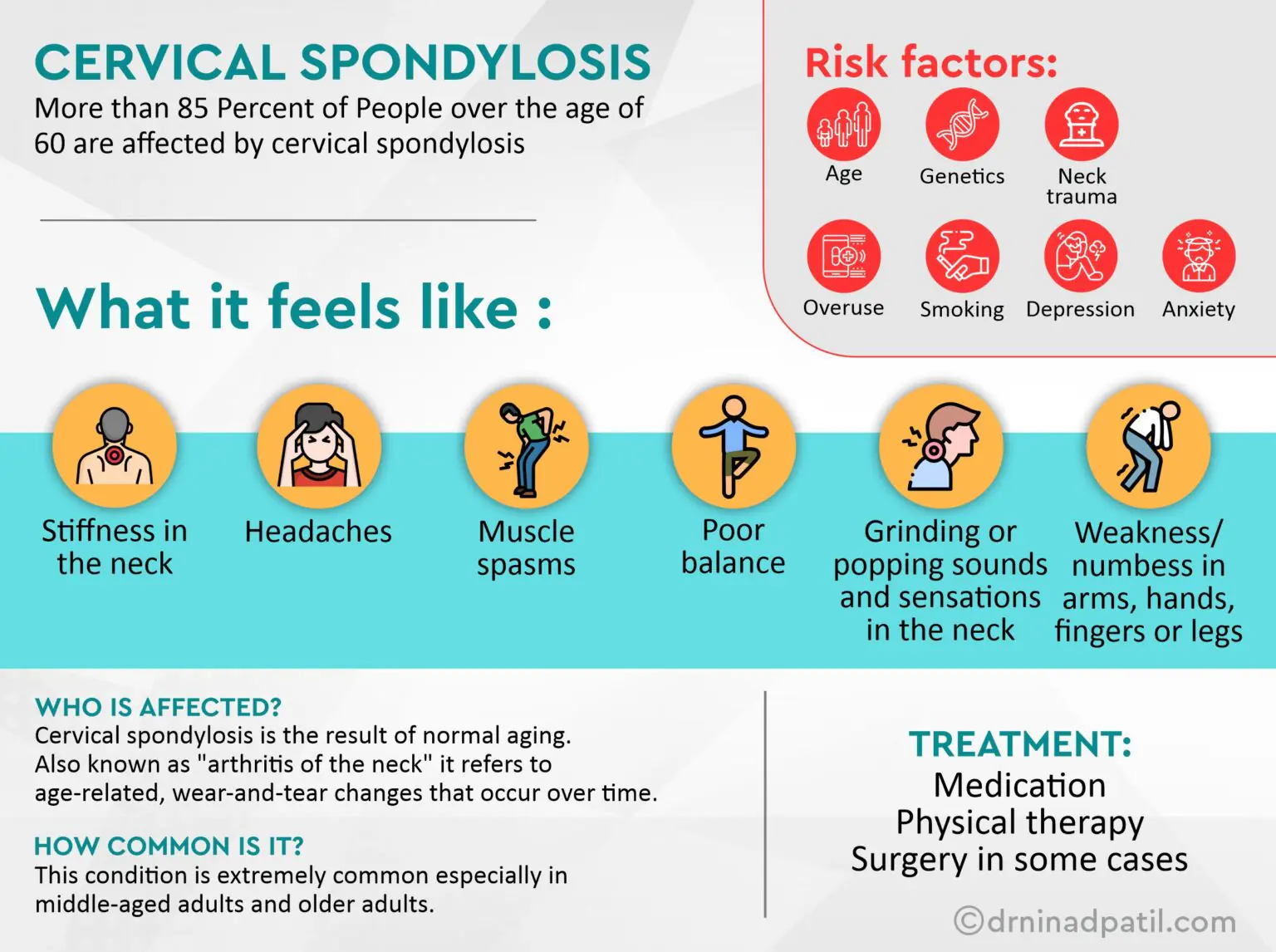
Cervical Spondylosis Treatment in Pune and PCMC
Cervical spondylosis, sometimes called neck arthritis, is a term used to describe the wear and tear of the bones and discs in your cervical spine, or neck. As we age, the discs in our spine naturally dehydrate and shrink.
Cervical spondylosis is very common, and it’s estimated that it affects more than 85 percent of people over the age of 60.
Risk factors
- Age: Cervical spondylosis is most often caused by the natural wear and tear of the spine as we age. The discs in our spine naturally dehydrate and shrink, which can lead to bone spurs and other changes in the spine.
- Genetics: Some people may be more genetically predisposed to developing cervical spondylosis than others.
- Neck trauma: Previous neck injuries, from a car accident or sports injury, can increase your risk of developing cervical spondylosis.
- Overuse: Jobs that require repetitive neck movements, awkward postures, or a lot of overhead work can put extra stress on the neck and spine, increasing the risk of cervical spondylosis.
- Smoking: Smoking can reduce blood flow to the spine, which can cause degeneration of discs and other tissues in the spine.
- Depression and anxiety: While not a direct cause, depression and anxiety can worsen the symptoms of cervical spondylosis.
Symptoms of Cervical Spondylosis :
- Stiffness in the neck
- Headaches
- Muscle spasms
- Poor balance
- Grinding or popping sounds and sensations in the neck
- Weakness or numbness in arms, hands, fingers or legs
How Common Is It?
This condition is extremely common, especially in middle-aged adults and older adults.
Who Is Affected?
Cervical spondylosis is the result of normal aging. Also known as “arthritis of the neck,” it refers to age-related, wear-and-tear changes that occur over time.
Treatment of Cervical Spondylosis :
- Medication: For more severe pain, stronger NSAIDs may be prescribed.
- Physical Therapy: Correcting posture can relieve strain on the cervical spine. Low-impact aerobic exercise can improve overall fitness and reduce symptoms.
- Surgery: Surgery is considered in cases where conservative treatments fail to relieve symptoms or when there is significant neurological damage.
Regain your mobility with expert cervical spondylosis treatment in Pune and PCMC
Are you dealing with neck pain, stiffness, or discomfort? Don’t let cervical spondylosis hold you back. Dr. Ninad Patil, a renowned specialist in Pune and PCMC, offers extensive and effective treatments.
Book Your Appointment Now
Call us at or visit our clinic to book your appointment. Experience the best cervical spondylosis treatment in Pune and PCMC with Dr. Ninad Patil.

